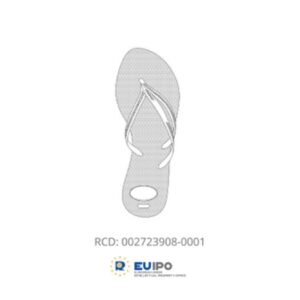An outline of the Chinese regulatory framework governing the import of counterfeit products bearing trademarks and patents.
In parallel import disputes involving intellectual property rights, I seek to address typical legal concerns that businesses could encounter when it comes to Intellectual Property Rights (IPR). Between intellectual property (IP) owners and importers or future resellers of protected or trademarked items, parallel imports have been a regular source of conflict. Parallel imports are nevertheless permitted in both the patent and trademark fields, according to the legal system and a few Chinese court decisions.
In this Article, the legal framework for parallel imports is introduced, along with how it interacts with Chinese patent and trademark laws—two areas where parallel imports are heavily utilised. It examines typical legal problems that businesses could encounter in situations involving parallel imports and IP. The Note also covers the effects of parallel imports on global e-commerce.
What do Parallel Imports entail?
Parallel imports happen when authentic, first-run goods that have been sold in one market (like the international market) with the IP owner’s permission are subsequently brought into a second market (like the domestic market) for resale without the IP owner’s permission.
Although though the imported items would probably face fierce competition from those of authorised sellers in the domestic market, such importation can nevertheless be profitable if the prices of the goods fluctuate noticeably between the domestic and international markets. This could be brought on by various labour and material prices, tax laws, or even pricing practises. A lower-cost country’s goods are encouraged to go to a higher-cost one by the price gap. By purchasing the items in the foreign country and importing them into China for resale, a parallel importer can profit from a situation where the commodities are sold for less in the foreign country than in China (PRC). In some areas where there are considerable legal, administrative, or business barriers to the importation of genuine goods, parallel imports are rarely acknowledged. For instance, a number of copyrighted products cannot be freely imported even with the agreement of the copyright holders due to numerous administrative rules, which might result in fines for importers and future resellers if they violate them. The government imposes considerable import restrictions for reasons unrelated to IP rights in sectors including the automotive and national defence. Parallel imports might not be economically advantageous in some other sectors of the economy where domestic prices for the products are competitive or even lower.
Parallel imports have long been a contentious legal issue. Both arguments in favour of and against parallel imports exist.
Exhaustion of Rights in Favor of Parallel Imports
According to this idea, a person who owns intellectual property has already benefited from the initial sale of the items in a foreign country and shouldn’t be allowed to request a royalty payment a second time in the home market.
According to the first sale doctrine, the importer and any future resellers of the items cannot be sued for infringement by the IP owner. The owner of the IP only gets one chance to manage the sale of products for which they hold the rights. The right of the owner of the intellectual property to control how the items are distributed ends after an authorised sale is made, therefore they are no longer able to file infringement lawsuits or demand damages from those responsible for subsequent distribution.
Exclusive IP Owner Rights in Opposition to Parallel Imports
According to this theory, IP owners have the right of exclusion, which gives them the power to prevent third parties from using their intellectual property without their consent. The geographic restrictions on IP rights, however, apply to this exclusive rights theory. IP rights, which are formed by legislation and only exist in the geographical area where they are recognised by local laws, are unlike any tangible property. As long as the imported items violate the IP rights of the IP owners on the domestic market, one who holds this opinion thinks that parallel imports should be prohibited.











